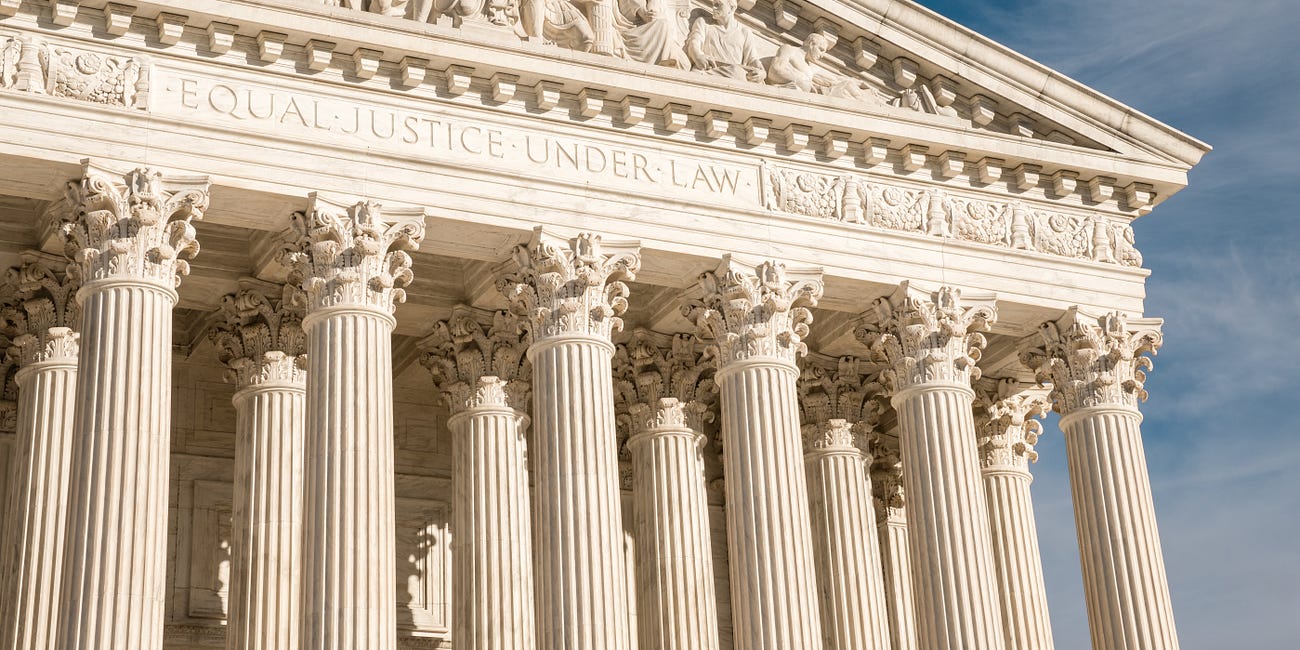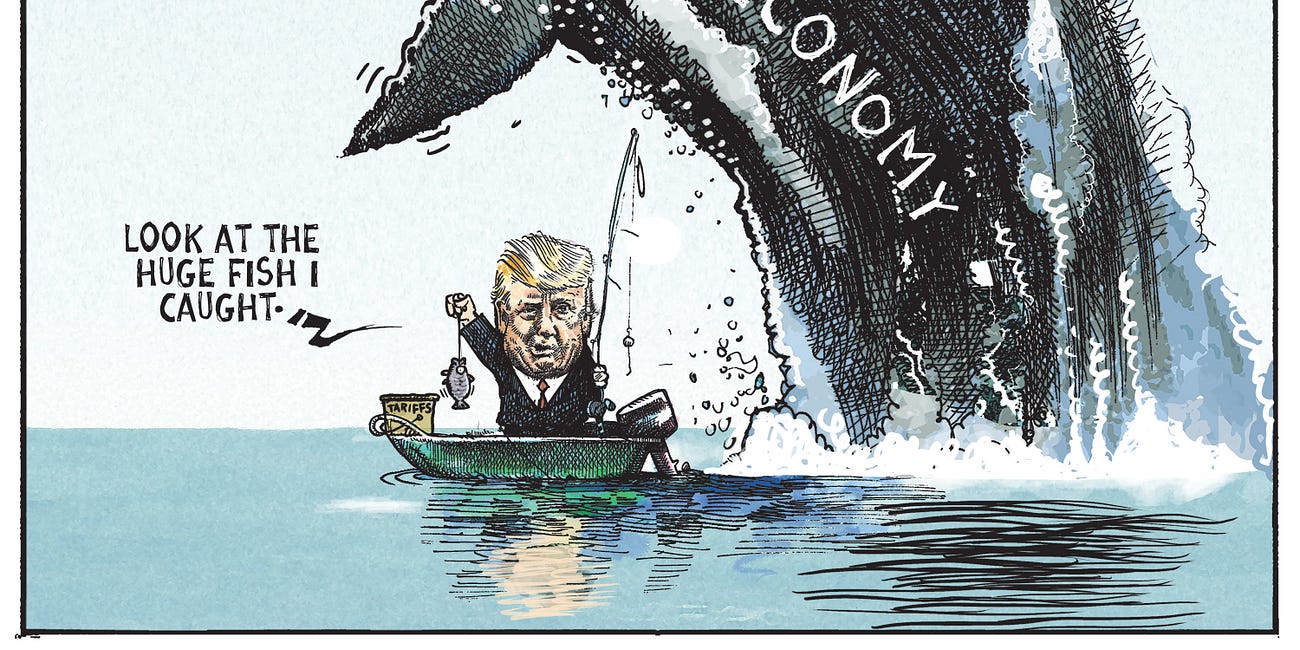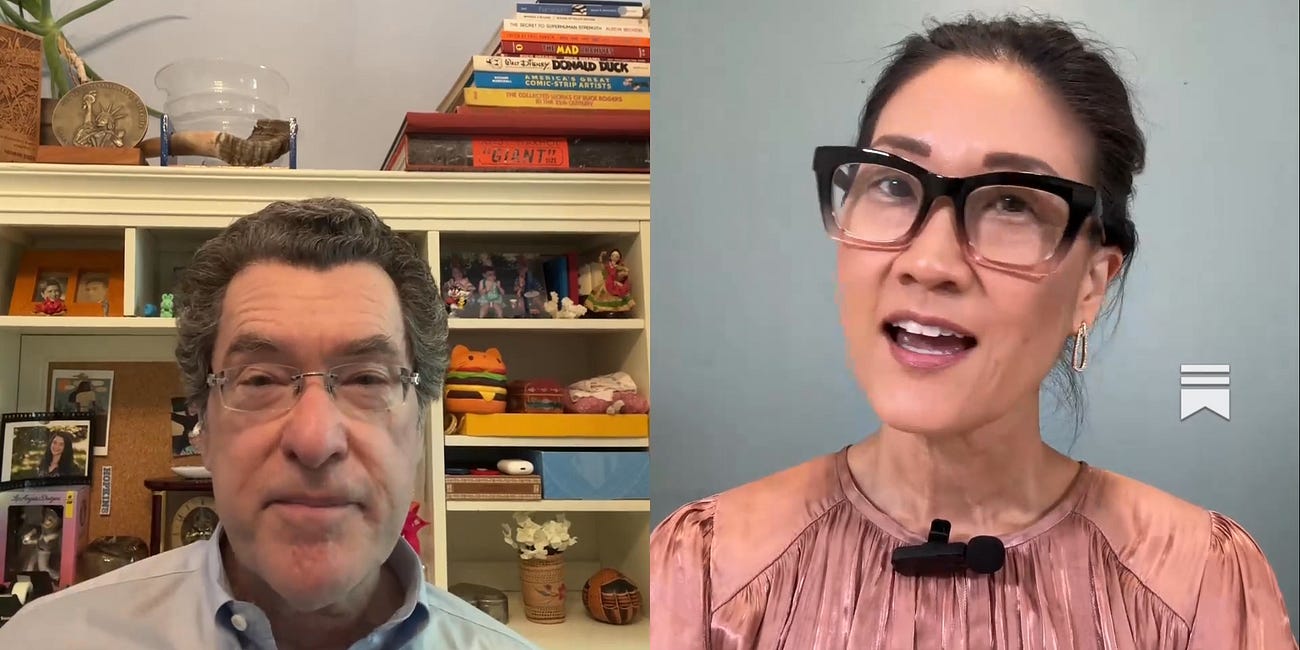Supreme Court doesn't take Middleboro 'only two genders' case. Why 2 justices wanted to
The U.S. Supreme Court declined Tuesday, May 27, to hear a Middleboro student’s free speech case two years after officials at Nichols Middle School asked then-seventh grader Liam Morrison to change out of a T-shirt that read “there are only two genders.”
Backed by the conservative legal organization Alliance Defending Freedom (ADF), Morrison and his family filed a lawsuit against the school in May of 2023, claiming the school violated his First Amendment right to free speech.
“We’re disappointed the Supreme Court chose not to hear this critical free speech case,” ADF Senior Counsel and Vice President of U.S. Litigation David Cortman wrote in a written statement. “Our legal system is built on the truth that the government cannot silence any speaker just because it disapproves of what they say,” he wrote.

Clarence Thomas and Samuel Alito write dissenting opinions
Conservative justices Samuel Alito and Clarence Thomas disagreed with the Court’s decision to deny the appeal, citing the Tinker v. Des Moines 1969 Supreme Court ruling that public school officials may not restrict a student’s freedom of speech unless behavior “materially disrupts classwork or involves substantial disorder or invasion of the rights of others,” according to court documents.
“This case presents an issue of great importance for our Nation’s youth: whether public schools may suppress student speech either because it expresses a viewpoint that the school disfavors or because of vague concerns about the likely effect of the speech on the school atmosphere or on students who find the speech offensive,” Alito wrote in his dissenting opinion.
What did the majority say?
For the U.S. Supreme Court to hear a case, at least four of the nine justices have to vote in favor of taking the case.
When the court votes against taking the case, as in this instance, the majority does not issue a written opinion explaining why.
Middleboro schools won every appeal
Last August, Morrison and Alliance Defending Freedom attorneys filed a notice of appeal after the U.S. District Court for the District of Massachusetts ruled against Morrison in a preliminary injunction.
In June, the First Circuit Court of Appeals in Boston upheld that ruling, asserting that the school had enough grounds to ask Morrison to change his shirt due to its potential to cause psychological distress to other students.
School officials said that his shirt also violated the school's dress code, which bans clothing that could cause harm or damage to a "protected class of students" — kids who identify as transgender and are particularly at risk of bullying and suicide, in this case.
Court sides with school that sent 7th grader home over ‘There Are Only Two Genders’ T-shirt

Left: Liam Morrison is pictured (screengrab via Alliance Defending Freedom); Right: a shirt like the one Morrison wore to school is shown. (Screengrab via CBS news).
A federal appeals court sided with a middle school that repeatedly sent a student home for wearing a shirt that was demeaning to students of some gender identities.
Liam Morrison, a 12-year-old student in Middleborough, Massachusetts, wore a T-shirt reading “There Are Only Two Genders” to seventh grade after his school held a Pride day and hung Pride flags in classrooms. School officials sent Morrison home on the grounds that his shirt targeted nonbinary students.
The following week, two people stood near the school’s bus drop-off area holding signs that read, “there are only two genders” and “keep woke politics out our schools.” Counterprotesters responded the next day with their own signs that read, “trans people belong,” “everyone is welcome here,” and “we support trans rights.”
The incidents drew the attention of local news media and the school reported receiving complaints from many parents about Morrison’s shirt and the controversy surrounding it.
Days later, Morrison returned to school wearing the same shirt, this time with the word “CENSORED” taped over the words “Only Two.” Morrison was again sent home from school.
Morrison, represented by conservative advocacy group Alliance Defending Freedom, sued and argued that school administrators at Nichols Middle School violated his First Amendment rights by refusing to allow him to wear the T-shirt.
The district court sided with the school and said, “students who identify differently … have a right to attend school without being confronted by messages attacking their identities.” It specifically said that while the 1969 landmark U.S. Supreme Court case Tinker v. Des Moines famously held that neither “students [n]or teachers shed their constitutional rights to freedom of speech or expression at the schoolhouse gate,” that free speech is limited by the “rights-of-others” doctrine applicable in this case.
Additionally, the district noted that the school’s decision barring Morrison from wearing the taped shirt was made in a response to its forecast of disruption that would interfere with the rights of other students and with important considerations about the safety of its students.
Morrison appealed and during oral arguments, Deborah Ecker, the attorney representing Middleborough Public Schools, said that the school received several complaints about Morrison’s T-shirt, and that the message on the shirt would cause significant harm to students in the school who identify as transgender or nonbinary.
“It says to someone who is nonbinary that you do not exist, that your validity does not exist. And it attacks the very core characteristic,” Ecker told the court.
Morrison’s attorneys, on the other hand, argued that wearing a T-shirt was “the most passive way” to share his views on the same subject covered during Pride day. Morrison has also shared his views on other political topics via clothing since the “two genders” shirt incident, including T-shirts with messages such as “Don’t Tread on Me” and “First Amendment Rights.” He faced no disciplinary consequences for those clothing choices.
The school’s dress code required that, “Clothing must not state, imply, or depict hate speech or imagery that target[s] groups based on race, ethnicity, gender, sexual orientation, gender identity, religious affiliation, or any other classification.” It also indicated that any apparel determined by the administration to be “unacceptable to [its] community standards” would not be allowed.
A three-judge panel of the U.S. Court of Appeals for the First Circuit upheld that ruling Sunday and sided again with the district. Chief U.S. Circuit Judge David J. Barron wrote for the panel which included fellow Barack Obama appointee U.S. Circuit Judge O. Rogeriee Thompson, and Joe Biden appointee U.S. Circuit Judge Lara Montecalvo.
Barron said that while it has held that Tinker’s rights-of-others limitation applies to cases of bullying, when there is “no physical invasion of any kind,” and the expression at hand is “passive and silent,” the law has “some uncertainty.”
Additionally, the district noted that the school’s decision barring Morrison from wearing the taped shirt was made in a response to its forecast of disruption that would interfere with the rights of other students and with important considerations about the safety of its students.
Morrison appealed and during oral arguments, Deborah Ecker, the attorney representing Middleborough Public Schools, said that the school received several complaints about Morrison’s T-shirt, and that the message on the shirt would cause significant harm to students in the school who identify as transgender or nonbinary.
“It says to someone who is nonbinary that you do not exist, that your validity does not exist. And it attacks the very core characteristic,” Ecker told the court.
Morrison’s attorneys, on the other hand, argued that wearing a T-shirt was “the most passive way” to share his views on the same subject covered during Pride day. Morrison has also shared his views on other political topics via clothing since the “two genders” shirt incident, including T-shirts with messages such as “Don’t Tread on Me” and “First Amendment Rights.” He faced no disciplinary consequences for those clothing choices.
The school’s dress code required that, “Clothing must not state, imply, or depict hate speech or imagery that target[s] groups based on race, ethnicity, gender, sexual orientation, gender identity, religious affiliation, or any other classification.” It also indicated that any apparel determined by the administration to be “unacceptable to [its] community standards” would not be allowed.
A three-judge panel of the U.S. Court of Appeals for the First Circuit upheld that ruling Sunday and sided again with the district. Chief U.S. Circuit Judge David J. Barron wrote for the panel which included fellow Barack Obama appointee U.S. Circuit Judge O. Rogeriee Thompson, and Joe Biden appointee U.S. Circuit Judge Lara Montecalvo.
Barron said that while it has held that Tinker’s rights-of-others limitation applies to cases of bullying, when there is “no physical invasion of any kind,” and the expression at hand is “passive and silent,” the law has “some uncertainty.”
Alliance Defending Freedom Senior Counsel and Vice President of U.S. Litigation David Cortman denounced the First Circuit’s ruling in a statement Monday and said the organization is currently considering whether to appeal.
“Students don’t lose their free speech rights the moment they walk into a school building,” said Cortman. “This case isn’t about T-shirts; it’s about a public school telling a middle-schooler that he isn’t allowed to express a view that differs from their own.”
Cortman further said said that the school “actively promotes its view about gender through posters and ‘Pride’ events, and it encourages students to wear clothing with messages on the same topic—so long as that clothing expresses the school’s preferred views on the subject.”
“Our legal system is built on the truth that the government cannot silence any speaker just because it disapproves of what they say,” Cortman concluded.
Counsel for the school district did not immediately respond to request for comment.
You can read the court’s full ruling here.
Editor’s note: This piece was updated to include comment from counsel.








